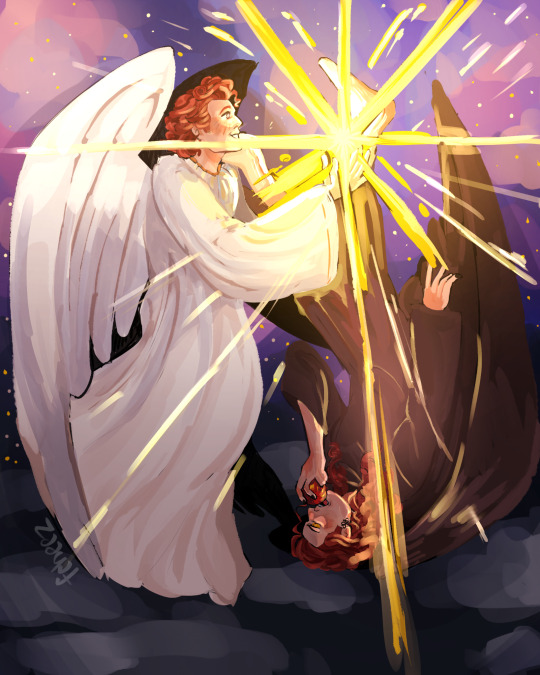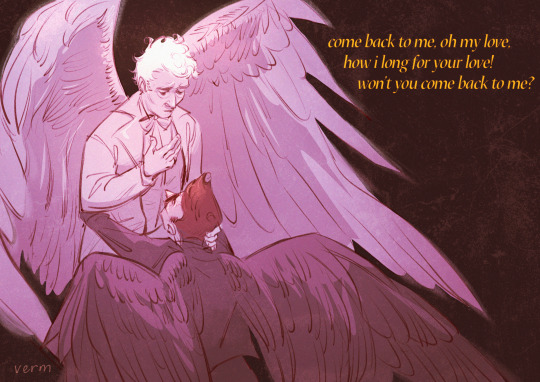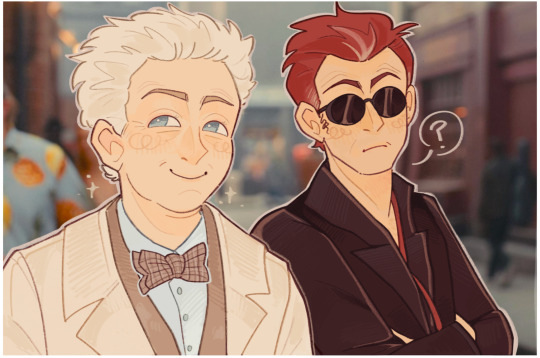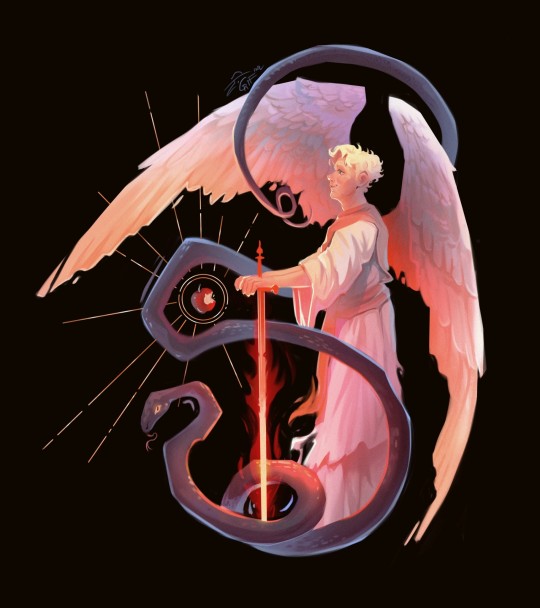Text

Aziraphale loves Crowley just the way he is 😭❤️
Art by leslychoco15 found on TikTok
6K notes
·
View notes
Text
The Big Damn Kiss
Buckle up, my fellow Good Omens Ineffable Mystery Puzzlers, Crackpotters, and Assorted Brainrotters, because I learned something HUGE yesterday.
This will be a bit of a long post, because I want to show you exactly how I got where I am. I want you to understand. I want to put all the naysayers to bed (ha! But I'm still gonna try), and settle this once and for all.
I know (almost) exactly what Crowley gave to Aziraphale during the kiss.
DO NOT TAKE ANY OF MY THEORIES TO NEIL! PLEASE!
Okay? Okay. Thanks. Shall we begin?
Ahem.
Firstly, whether you believe me or not, I am 100% certain that Crowley did, indeed, give something to Aziraphale in his mouth during The Kiss. I've covered that in the link previous. Okay? Okay.
I did not know what it was. I've now heard theories that it was a bullet (nope), a ball bearing (nope), hellfire (nope), and no one, NO ONE has suggested what I see. (If you have, hello! Talk to me!)
Here's our first foreshadowing Clue:
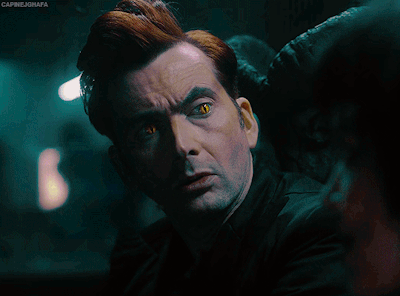
And here's our next foreshadowing Clue:
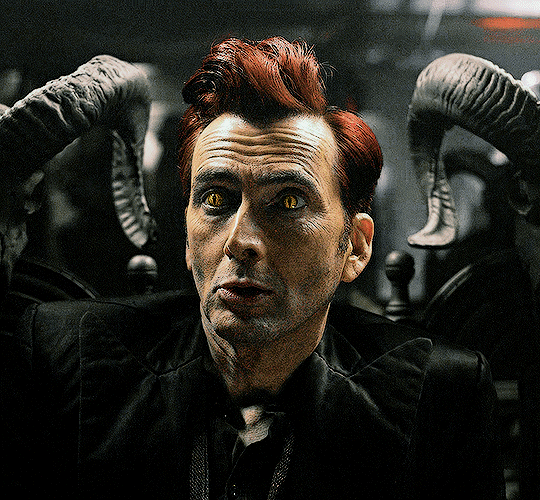
And the next:
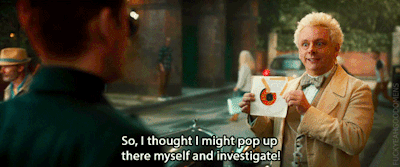
And our last Clue:
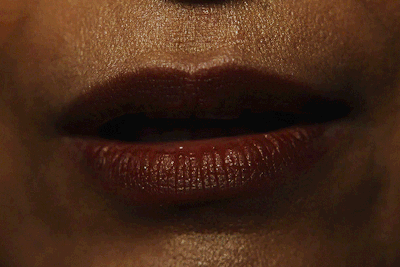
With me so far? Well, that first GIF is a bit off, I couldn't find one of Crowley actually spitting out the flies. But he does. When Beelzebub first drags him to Hell, he actually goes "Pleaugh!" and spits out four or five flies.
Moving right along, we come to Crowley in Heaven with Muriel, looking at the trial. We learn two important things here:
One, Gabriel doesn't have a desk.
Two, Muriel does. Where they keep the records. And it's a bit lonely. Every few hundred years, someone comes and asks for something. Muriel can't access the sensitive ones, you have to be pretty high up. A throne, dominion, or higher. Like, maybe Supreme Archangel?
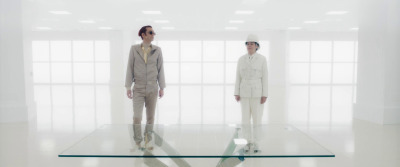
So if Gabriel doesn't have a desk, whose desk is he at when he's getting ready to leave Heaven? Of course I can't find a damn picture of Gabriel at the desk, but it's Muriel's. Where they keep the RECORDS.
Gabriel puts his memory into the fly, then gets on the elevator to go to Earth.
Now, when Gabriel opens the fly with his memories inside, we find out that it's a container. Bigger on the inside. You can put thing(S) in it. The bit we see of him remembering is shot in two parts, one where he's flying down a red tunnel, one where he's flying down a blue. If you slow this scene down and watch, you can see that he is NOT looking at just his own memories. There is more going on here, more that he was not present for. @embracing-the-ineffable put up a great meta about that here. Go look!
Now I figured Gabriel must have taken something else. Something important. Something useful. Something he meant to give to Aziraphale, except he forgot.
I also figured he must have left whatever it was in the fly when he took his memories out. Crowley must have realized while watching the trial footage that Gabriel also grabbed something else. I don't know when Crowley grabs the fly, but he does. And that is what he gives to Aziraphale in the kiss. Why? Well.
I had no idea what Gabriel took until I started working on the chiastic structure of season 2. I'm not done with that analysis yet, but let me show you one thing that I have found so far:
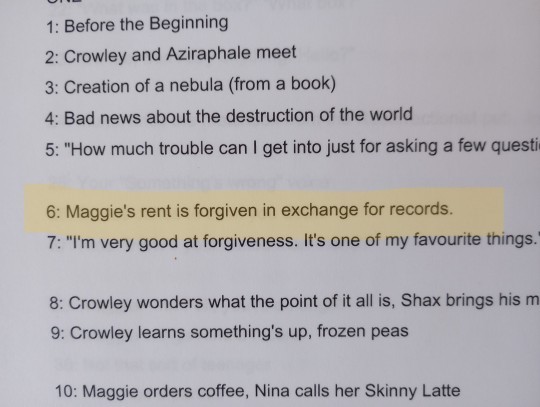
(The numbers are just to try and help me navigate the story and its events without time stamps)
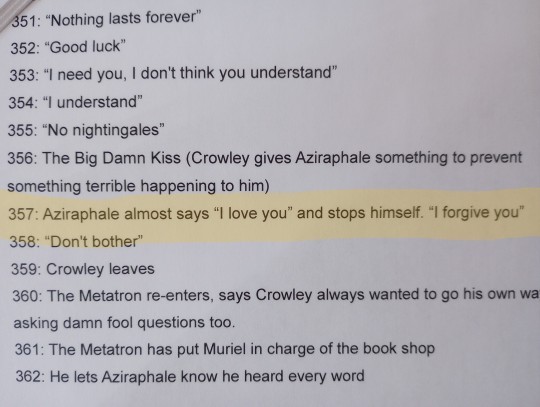
My note #357 of what happens isn't quite right, but when I saw the only two times Aziraphale says "I forgive you" are towards the beginning of Season 2 and towards the end, I realized I had something.
Rephrase line 357: Crowley's kiss is forgiven IN EXCHANGE FOR RECORDS.
(Not that I think Crowley's kiss needs to be forgiven. It's just what Aziraphale says, and had to say at that moment, because the Metatron was listening in.)
What does Heaven in Good Omens remind us of most of all?
A big corporate entity. And what do powerful people do when they get fired from a big corporate entity? They download all their emails while they're cleaning out their desks. Damning emails. Emails that can be used to black mail or even destroy big corporate entities. Or, ya know, maybe they swipe some sensitive RECORDS?
Oh yes.
Here's Aziraphale reading the records:
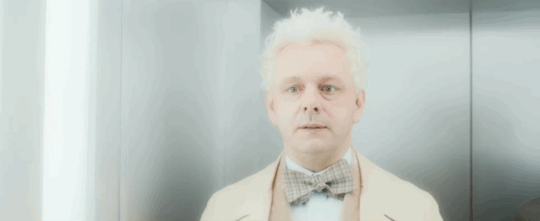
Here's Aziraphale being horrified and outraged by what he's reading:
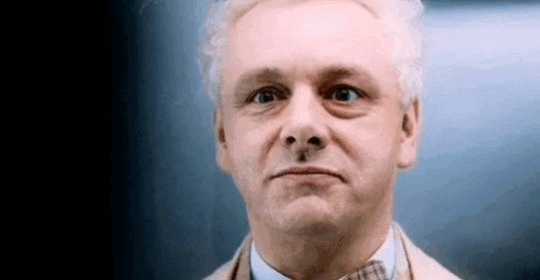
And here's Aziraphale realizing he has got some GOOD DIRT on Heaven. Maybe enough to bring them down:

That's it folks. I have no idea what the records actually say, and maybe we're not meant to know until season 3, but whatever it is, it's GOOD.
That's my story, and by God Herself, I'm sticking to it.
222 notes
·
View notes
Text
WAKE UP BRATS!!! A brand new song (Aziraphale-coded song AT THAT) just dropped!!
It's actually just a song for my "how to ruin a revelation" EP, but since Aziraphale and I share some certain experiences and parts od lore, I thought I'd share this one too. An addition to "let there be light", I suppose then. It's silly and very raw, and my knuckles do hurt, but I think the message is coming through.
I think I could call it.. "a waltz for the in betweeners"???? Maybe???
Lyrics:
what if I don't want to go up to Heaven
what's left of life, beyond the grave?
and what if I don't want to go back to Eden
what's left of it, if there's no snake?
you taught me to dance
you taught me to eat
taught me how to kiss
and that I like it sweet
so why would I leave this Earth behind?
God knows, nowhere else could I find
you
[🎶]
all the composers I've ever admired
could not bear to humour the angel choirs
and none of the actors I greet in the foyer
I'd see up there, granted a golden star
they taught me to watch
they taught me to read
taught me how to love
and what's it like to grieve
it's not that I ask for a pass to Hell
God knows that I want to live well
but when doomsday comes
and our time is nigh
and our neighbours weep
weaving their last goodbye
I want to stay landing, between the floors
if needed
just to hold a hand of yours
[🎶]
25 notes
·
View notes
Text
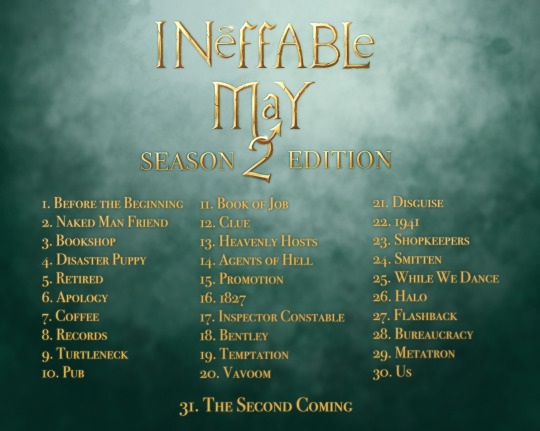
You hear that? Ineffable May is nigh! That’s right— this month long daily prompt event dedicated to Good Omens… is back. Participate using art, writing, cosplay, or any other craft at your disposal.
374 notes
·
View notes
Note
What’s your favourite line from good omens?
The invisible and unbreakable one that joins Crowley and Aziraphale.
12K notes
·
View notes
Text
I went ahead and ordered The New Oxford Annotated Bible with Apocrypha. For most Good Omens book club-related stuff, I have been looking to my library - but this one is going to be way, waaaaaaaaay too long and complicated to get through everything I'd like within a reasonable duration for checking out a library book. I guess I'll probably look at it a bit at a time.
6 notes
·
View notes
Text
Why are there Infinity Loops or Möbius Strips in Good Omens?
The infinity loop, it's the idea of something that is unlimited and endless, you know...

In this post, I'm going to explore some of the symbols in the show that I think relate to this concept of eternity. For example, have you noticed that the infinity loop shows up amongst the symbols at the start of Season 1? While God's narrates about her "ineffable game" of her own devising, here it is on screen:
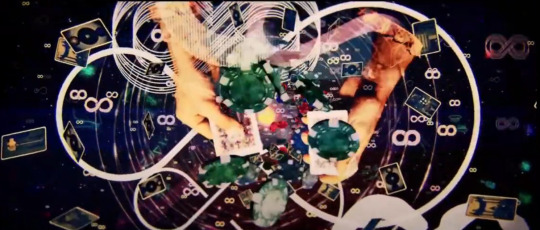
Why do we see so many infinity symbols here? Where else can we see this same symbol?
Read on for the places I've spotted it in both S1, S2 and the book. I’m hoping you’ll let me know if I missed any, and what you think it all means!
Eternity in Good Omens
In the book, when Crowley is explaining the concept of eternity to Aziraphale, he uses the idea of a bird which flies every thousand years to the same mountain to sharpen it's beak. Here's the conversation, with Aziraphale's interruptions edited out (pg. 55 - 56 in my hardcopy):
“Just you think about it," said Crowley relentlessly. "You know what eternity is? You know what eternity is? I mean, d'you know what eternity is? There's this big mountain, see, a mile high, at the end of the universe, and once every thousand years there's this little bird—”
“Okay. And every thousand years this bird flies—"
"flies all the way to this mountain and sharpens its beak—”
“Sharpen its beak on the mountain," said Crowley. "And then it flies back—”
“And after a thousand years it goes and does it all again," said Crowley quickly.”
This story originally came from a folk tale called the Shepherd Boy. It's very short and you can read the Brother's Grimm version here.
If we take Crowley at his word, then eternity in Good Omens is represented by repeating the same thing over again, whether that's flying forever to the same mountain, or having to watch the Sound of Music "over and over and over and over and over and over and over" into infinity.
The Infinity Loop
The common symbol for infinity, ∞, was invented by the English mathematician John Wallis in 1655. Being an extremely popular symbol, it shows up in a lot of places, including the Rider-Waite Tarot deck. Several other uses are detailed on the wikipedia page.
So, where does it appear in Good Omens? In addition to God's monologue, we also see it during the S1 baby swap sequence as part of the Satanic nun's costumes. Here it is on the upside-down watches they wear:
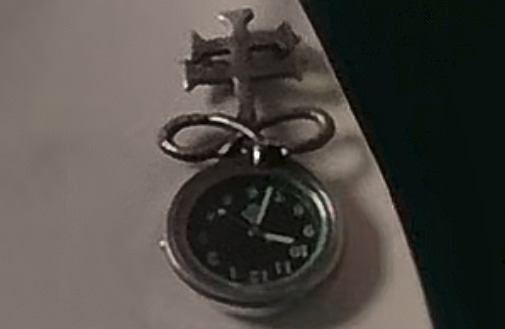
Here it is again on Newt's belt buckle in S1:
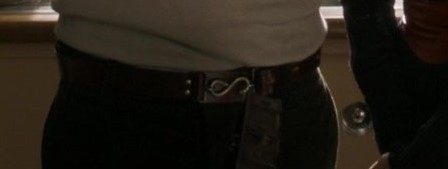
Here's another possible infinity symbol on Newt's computer screen, when he's working at United Holdings:
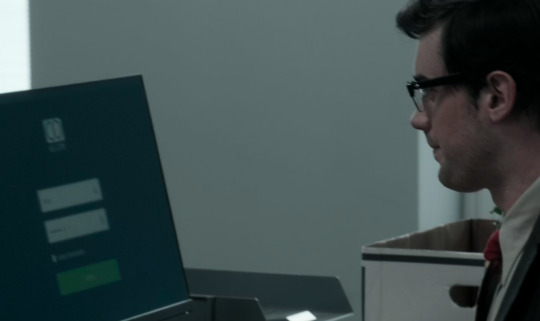
Outside of the show, it also appears on the merch released post-S2 (though a little bit disguised in the form of the snake wrapped around them). Included is the tagline of "The end was just the start".
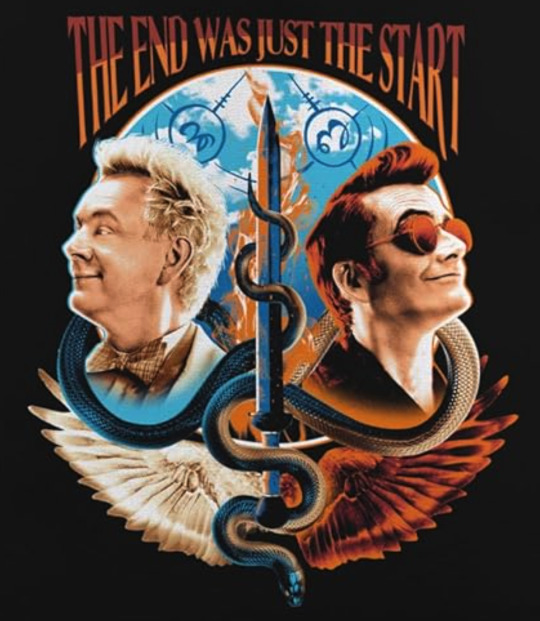
There are also two references to infinity in the book. Here's the first very near the start (pg. 14 of my 2015 hardback edition):
“He [God] plays an ineffable game of His own devising, which might be compared, from the perspective of any of the other players, [ie., everybody.] to being involved in an obscure and complex version of poker in a pitch-dark room, with blank cards, for infinite stakes, with a Dealer who won't tell you the rules, and who smiles all the time.”
And here's the other, closer to the end, at the airfield (pg. 363 of my edition):
“Adam glanced up. In one sense there was just clear air overhead. In another, stretching off to infinity, were the hosts of Heaven and Hell, wingtip to wingtip. If you looked really closely, and had been specially trained, you could tell the difference.”
So, Good Omens makes a few references to infinity, which I find interesting in itself. But wait, there's more!
The Ouroboros
There is another symbol which also appears in Good Omens and also suggests a form of repetition - the ouroboros. The ouroboros is an ancient symbol depicting a serpent or dragon eating its own tail and depicts an eternal cycle of renewal - an end which comes back to the start again. I recommend taking a look at the whole wikipedia page, which is quite fascinating:
Now, this would be a rather abstract representation, but I think this appears on the wall of Nina's cafe. Unfortunately, in my image Terry's name has been cut off, but it does say Terry and Neil within those segments of the loop:

So we have the infinity symbol, the ouroboros... anything else? Well, yes, there is a third symbol for us to ponder over.
The Mobius Strip
Closely related to the idea of the infinity symbol is that of the mobius strip. To oversimplify things, the mobius strip is a object which is a continuous surface in a loop. At first glance, it appears to have two sides, but these are indeed all part of the same side (maybe we should call this "our side"?). As shown in the below gif, an object traversing the surface of the strip can repeat in a continuous loop.
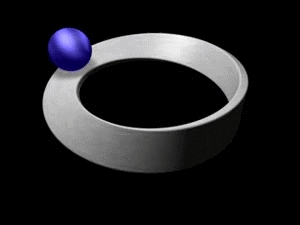
Where does the mobius strip appear in Good Omens? Well, it appears in the book. Here it is being used to refer to Anathema's broken bike wheel (pg. 92 in my 2015 hardback edition):
“Behind the Bentley a bicycle lay in the road, its front wheel bent into a creditable Mobius shape, its back wheel clicking ominously to a standstill.”
And again, describing the discussions of the Them, while Adam is coming into his powers (pg. 229 in my hardback):
“Serve everyone right if all the nucular bombs went off and it all started again, only prop'ly organized," said Adam. "Sometimes I think that's what I'd like to happen. An' then we could sort everythin' out."
The thunder growled again. Pepper shivered. This wasn't the normal Them mobius bickering, which passed many a slow hour. There was a look in Adam's eye that his friend couldn't quite fathom—not devilment, because that was more or less there all the time, but a sort of blank grayness that was far worse.”
Not only does the word "mobius" appear twice in the book, but Neil has continued to be interested in such ideas, releasing the song Mobius Strip in April 2023 (as brought to my attention by @embracing-the-ineffable). The song is a meditation on the nature of time, magic and how things tend to repeat. In the song, the grandfather shows the boy a trick to creating a mobius strip using paper, tape and some scissors. Here's how the song concludes:
"I'm... Somewhere on the strip
We all are, walking the sign of infinity into the darkness
And I'm looking for signs of a life, in a memory
Reflected in the mirror
I'm a mobius strip
We all are
We only ever see one face
It's the twist that brings you back where you started"
If you're unfamiliar with the idea of creating a paper-based mobius strip, here's a video on how it works:
youtube
Is the loop Aziraphale and Crowley?
To form a mobius strip, you need to cut the paper first, flip it, and then join the ends back together.
To me, this reminds me a lot of the S2 opening sequence, when we see the bridge disconnect, separating Aziraphale and Crowley on either side, only to then reconnect at another place.
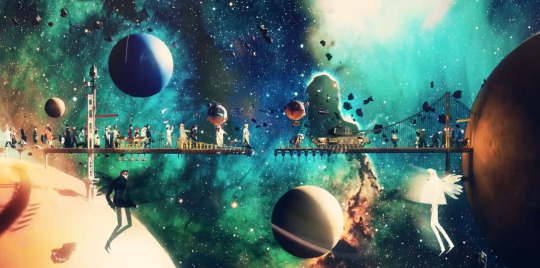

Does this mean the bridge, and perhaps the loop, represents our ineffable duo? This merch sure seems to suggest so...
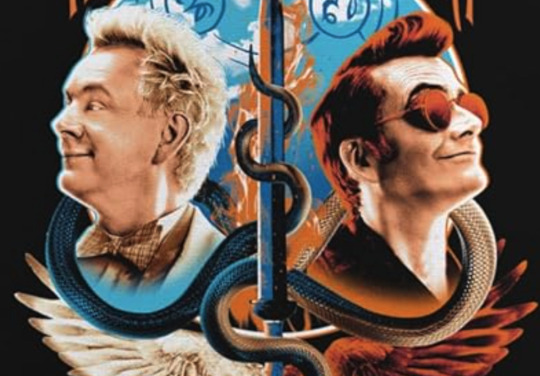
That could be one interpretation of this sequence, though I'm sure there are others. What do you think? Does the loop say anything about Crowley and Aziraphale's relationship to one another?
Put it all together and...
In summary, we have at least three different symbols signifying some sort of repetition in Good Omens - the infinity loop, ouroboros and mobius strip. So, what might they mean? Why do you think it's been included, and so often? Even more importantly, have I missed any? There's endless details to be mined from this show, so I wouldn't be surprised if there are more.
I have a few theories, but nothing concrete yet, so I'm really interested in hearing everyone's ideas!
109 notes
·
View notes
Text
Nineteen Eighty-Four: Quotations of interest and Good Omens philosophy
Nineteen Eighty-Four Main Post
There were a few passages in the novel that stood out, that I wanted to bring to your attention, because they were interesting - but also because they articulated certain things that were hard for me to articulate myself. And, of course, there are ways they connect to how I interpret Good Omens, especially the behavior of Heaven and Hell.
Because of the last couple of paragraphs in the Good Omens novel, I really believe the core themes of Nineteen Eighty-Four are somewhere in its DNA.
"The terrible thing that the Party had done was to persuade you that mere impulses, mere feelings, were of no account, while at the same time robbing you of all power over the material world. When once you were in the grip of the Party, what you felt or did not feel, what you did or refrained from doing, made literally no difference. Whatever happened you vanished, and neither you nor your actions were ever heard of again. You were lifted clean out of the stream of history."
In other words, because the Party is so committed to forcing its people to behave in certain ways, they are denied their own internal experiences. They are not allowed to find their own meanings. And this paragraph contains what I tend to imagine Heaven and Hell have done to the emotional experiences of every angel and demon, to some degree. Just switch around a few words; replace "the Party" with "Heaven and Hell," "power over the material world" with "power to make choices," and "the stream of history" with "the cosmic order."
It seems to me that angels and demons have the same capacity for emotion that humans do, and the same ability to make their own choices, but they often act like they don't. And honestly, can you blame them? They are not functionally "given" free will. Even the narration from Crowley's perspective in the original novel suggests that he views humans as having free will where angels and demons don't. Except we know that they are capable of making their own choices and judgments - which is "free will" as humans understand it - but they will, as Crowley learns repeatedly from Hell, get punished for their choices. They might get reassigned, at absolute best, or tortured, or their memories might be erased entirely for their disobedience. Because of the connection between memory and identity, that would be a kind of execution.
And so they just agree that they don't have free will. Because to exercise free will is, for angels and demons, incompatible with continued existence.
The Good Omens novel is definitely, of course, in favor of choosing to exercise free will even when you've repeatedly been denied it by authority. But that pressure from Heaven and Hell is a meaningful part of the narrative, too, for a reason.
I have to admit, I have experienced a bit of consternation about how it all fits together. Part of the Good Omens narrative is about the importance of choice; part of it, though, is undeniably about surviving under authoritarian surveillance. How do those fit together?
My guess is that's what Season 3 is partly about. I believe the answer is less about rebellion at any and all costs and more about how important it is to give other people the power to make choices. That's the difference between what Mr. Charrington did to Winston and Julia and what Adam did for Crowley and Aziraphale (and, of course, literally everyone else). Aziraphale and Crowley only survive their Season 1 stand against Heaven and Hell because Adam and Agnes Nutter have given them the tools to do so. Crowley and Aziraphale have something Winston and Julia never got: a real friend with the actual power to reject the system.
Crowley and Aziraphale tried to return this favor to Adam, too. Adam has far more sway over reality than they do, but they were still the angel and demon on his shoulders, coaching him to make his own decision about who he is. Aziraphale tries to give this choice to Gabriel and Beelzebub as well in Season 2; again, he is only able to suggest asking them what they want to do, since Heaven and Hell aren't obliged to listen to him, but his suggestion seems to kick off their decision to leave Earth together. I have to wonder if this is another choice that will come back.
One could even suggest that Crowley and Aziraphale's very first acts on Earth were to give choices to humans. Aziraphale gave Adam and Eve the flaming sword, protective power to wield as they chose; Crowley encouraged Eve to eat the Forbidden Fruit, which gave Adam and Eve awareness of their choices and all the implications thereof.
In this way, the choices that the characters gave to each other were passed along. Millennia later, Adam and Eve's descendants used that power of choice to help secure Crowley and Aziraphale's safety. By leaving the prophecy about choosing their faces wisely, Agnes Nutter imparted Knowledge to Crowley and Aziraphale, and by restoring Aziraphale's corporation, Adam gave them a sword with which to defend themselves by swapping appearances.
Anyway, I've wandered far away from the Nineteen Eighty-Four quotation. The point is that authoritarians remove choices, and in so doing, they remove people's opportunity to create meaning for themselves. According to Good Omens, maybe the antidote to that meaninglessness is to help return people's choices to them.
"The primary aim of modern warfare (in accordance with the principles of doublethink, this aim is simultaneously recognized and not recognized by the directing brains of the Inner Party) is to use up the products of the machine without raising the general standard of living. ...
"For if leisure and security were enjoyed by all alike, the great mass of human beings who are normally stupefied by poverty would become literate and would learn to think for themselves; and when once they had done this, they would sooner or later realize that the privileged minority had no function, and they would sweep it away. In the long run, a hierarchical society was only possible on a basis of poverty and ignorance."
I'll be surprised if the ultimate motivation for the war and greater enmity between Heaven and Hell isn't some version of this, keeping the angels and demons under control. Having two "sides" is an especially convenient way of handling it, because it doesn't just keep them complacent - it keeps them fulfilling very rigid roles while ensuring they can't connect with each other or realize this isn't actually the way things have to be.
"It is precisely in the Inner Party that war hysteria and hatred of the enemy are strongest. In his capacity as an administrator, it is often necessary for a member of the Inner Party to know that this or that item of war news is spurious and is either not happening or is being waged for purposes quite other than the declared ones; but such knowledge is easily neutralized by the technique of doublethink. Meanwhile no Inner Party member wavers for an instant in his mystical belief that the war is real, and that it is bound to end victoriously, with Oceania the undisputed master of the entire world."
Doublethink also features in pretty much every angel's, and probably in every demon's, thought process in regards to the war. Michael and Ligur are, to me, the most shining example of this. They're two characters who never show a shred of hesitation about the war - seem in fact keen to hurry up and get to fighting - but are willing to cooperate quite nicely with each other to make it happen. They are able to regard each other as enemies and secret allies at the same time.
"... What is our motive? Why should we want power? Go on, speak," he added as Winston remained silent. ...
"You are ruling over us for our own good," he said feebly. "You believe that human beings are not fit to govern themselves, and therefore---"...
"That was stupid, Winston, stupid!" he said. "You should know better than to say a thing like that. ... Now I will tell you the answer to my question. It is this. The Party seeks power entirely for its own sake. We are not interested in the good of others; we are interested solely in power. Not wealth or luxury or long life or happiness; only power, pure power. ... God is power. ... The first thing you must realize is that power is collective. The individual only has power in so far as he ceases to be an individual. ... Alone---free---the human being is always defeated. It must be so, because every human being is doomed to die, which is the greatest of all failures. But if he can make complete, utter submission, if he can escape from his identity, if he can merge himself in the Party so that he is the Party, then he is all-powerful and immortal. The second thing for you to realize is that power is power over human beings. Over the body---but, above all, over the mind."
That was a conversation that took place during O'Brien's torture of Winston. Again, a passage that relates to my interpretation of Heaven and Hell as a power structure.
First of all, Heaven and Hell's true motives. Maybe this touches on it. Power for power's sake. Power because...that's what angels and demons are supposed to have, right? They make the universe run, right?
Look around for interpretations of the war in Heaven and you'll see, of course, the ever-present notion that the rebel angels wanted God's power for themselves. But you'll also see a number of suggestions that Lucifer and the other rebels were envious of humanity or otherwise disagreed with mankind's place in the cosmic order. Considering the implications of this further, one could imagine that would mean they feel threatened by humanity. Adapting this to Good Omens, that feeling of being threatened could lead the angels (or, at least, the one or ones with the power to make the decisions) to design this structure for keeping people down, as the Party did with the proles.
So. Maybe we've got Heaven and Hell - the higher-ups, specifically, or maybe just one higher-up - running this structure for the sake of preserving their power, keeping all the angels and all the demons and, crucially, humanity itself under careful control.
O'Brien says the Party is chasing power for power's sake; that power isn't being used to have experiences or accomplish anything, only to feed into itself again, to be enjoyed by no one in particular. As a result, the Party's end state is functionally meaningless; individual people sacrifice their identities to the Party just to keep it existing, forever, doing nothing except continuing to exist and destroying all individuality in the process.
I suspect the exact same is true, on some level, of Heaven and Hell - angels and demons aren't allowed their own free will, and therefore, they are denied personal meaning as well. And this same anti-meaning is, I think, probably going to ramp up with the Second Coming. The Metatron refers to "the next phase of the Ineffable Plan"; it sounds to me like he's thinking that once the angels can get rid of those pesky humans (and demons) once and for all, they can finally stop worrying about all this "free will" nonsense.
During the Second Coming, God's "elect" (those who submit to Heaven?) are supposed to all rise to Heaven to be united with God while the damned (those who have retained their own wills?) will be destroyed. The Second Coming may indeed be about assimilating everyone into one power, in which case, personal meaning could not possibly be created.
It's worth noting that if things did indeed play out this way, it would not be possible to be "good." There would be no one to be good to, or for, or to make judgments. There would only be the assimilated mass of Heaven.
Wanting everyone assimilated into Heaven, so to speak, is also a potential motivation for Heaven and Hell wanting to get rid of Earth, but needing to do it in a methodical way, rather than simply attacking the world at just any old time. Heaven and Hell would be causing Armageddon to control their own people; they'd want to convince the angels and demons that humanity is merely one huge chessboard to manipulate and their whole purpose is to cause Armageddon, thereby decreasing the risk that the angels and demons wouldn't comply or would come to find any meaning in Earthly existence.
This perspective on the power hunger of Heaven and Hell loops us right back to the first quotation in the post, which I'll put again here, modified for Good Omens purposes:
The terrible thing that [Heaven and Hell] had done was to persuade you that mere impulses, mere feelings, were of no account, while at the same time robbing you of all power [to make choices]. When once you were in the grip of [Heaven and Hell], what you felt or did not feel, what you did or refrained from doing, made literally no difference. Whatever happened you vanished, and neither you nor your actions were ever heard of again. You were lifted clean out of [the cosmic order].
7 notes
·
View notes
Text

At this point this painting is just a constant in my life
Like I'll work on it for 20min sometimes when I feel like it. Don't think I'll ever finish at this pace - There's still all the background, Crowley's wings, the rest of his clothes.
Welp, at least I got something,,
420 notes
·
View notes

